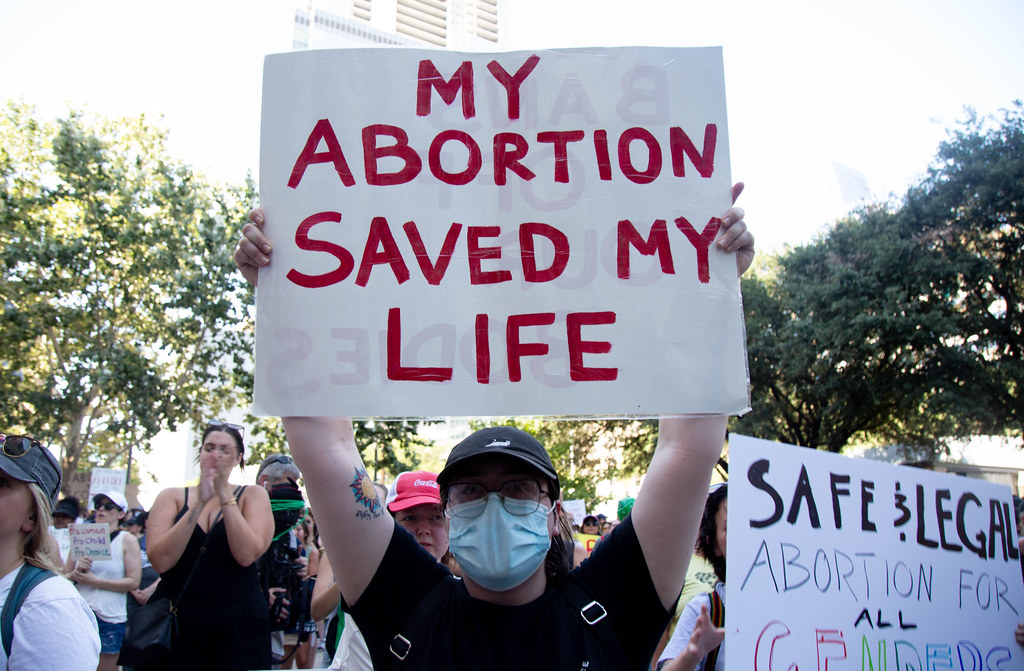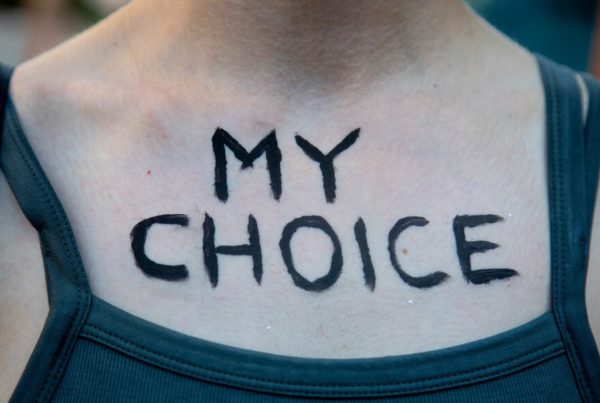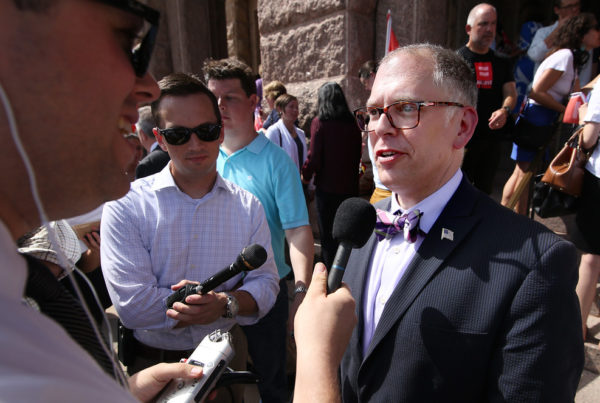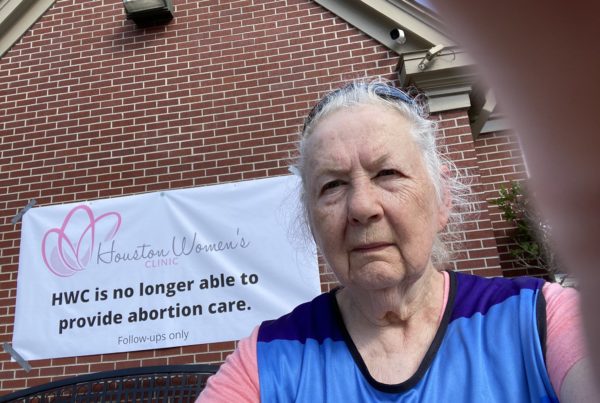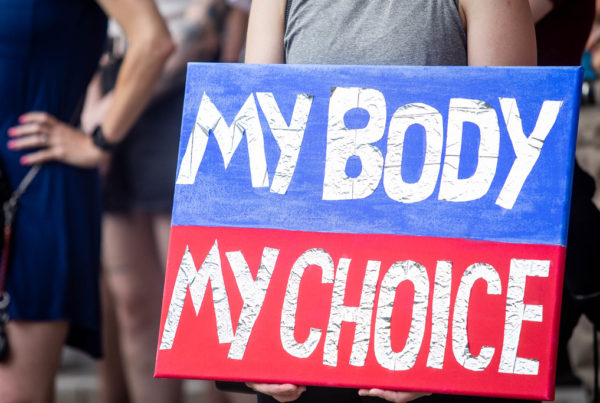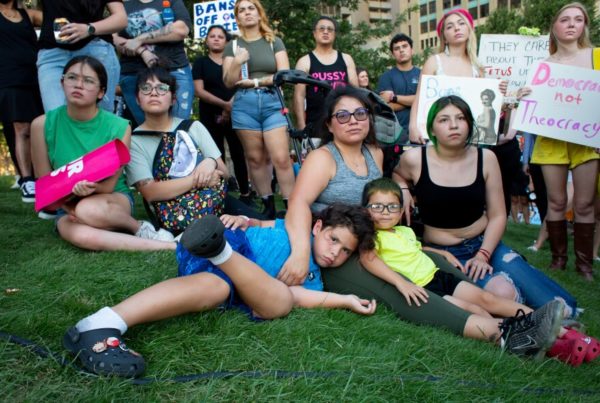The Texas ‘trigger law’ going into effect after the Supreme Court ruling overturning Roe v. Wade will criminalize almost all abortions in the state.
But at least two Texas cities – Austin and Denton – are working on plans to effectively decriminalize it locally.
Audrey McGlinchy, a reporter with KUT Austin, told Texas Standard why the effort is similar to what’s been done in some areas when it comes to crimes involving marijuana. Listen to the interview above or read the transcript below.
» The Texas Standard wants to hear from you: Share your reaction to the Supreme Court’s abortion decision
This transcript has been edited lightly for clarity:
Texas Standard: What has Austin done so far on this effort?
Audrey McGlinchy: So they’ve put out a resolution, a draft resolution. They have not voted on it yet. The plan is to vote on it in a couple of weeks. But this resolution – which is coming from two council members, Chito Vela and Vanessa Fuentes – basically does two things. One, it asks that the city not spend money on tracking or investigating alleged abortion crimes. And it also asks our city’s police force to not prioritize investigating or citing people for these alleged abortion crimes.
You compare that with the city’s efforts to decriminalize marijuana. How has that worked?
So several years ago, the City Council basically passed a very similar resolution. This came out of, folks may remember, a new state law was passed that defined hemp and by doing so defined marijuana. And a lot of prosecutors across the state of Texas were now faced with having to buy equipment to measure the level of THC in substances. And so a lot of folks were saying they were no longer going to be able to prosecute misdemeanor marijuana cases. And the City of Austin wanted to essentially make sure that happened. So they passed a resolution basically asking the chief of police to direct his police to not cite people for marijuana possession any longer.
Of course, the City Council, they’re technically not the boss of the police department. You know, all of these decisions still lie at the hands of the police chief. And at least in the case of marijuana, then-Chief Brian Manley said he would not not cite people for marijuana possession. He changed his mind six months later.
But in regard to this abortion resolution, I have heard from the city speaking on behalf of the police department, that they will do what they can to uphold this. So it looks like, as of now, as opposed to the marijuana decision, that the police chief is on board from the get-go to follow this direction.
We’ve seen this in the past on several situations where you have Austin in one camp and state leaders in another. What do you foresee in this case?
I asked one of the council members who brought this forward, ‘Do you anticipate the state will do something to block this or unravel this? ‘And, you know, they admit, yes.
You know, the state Legislature meets again next year. They could very much pass something that would unravel Austin’s resolution here. But I know council members have communicated to me that this is written as a recommendation – they’re trying to do what they can to not skirt state law. And so it’s written a little more, I guess, lightly. And so they’re hoping that that will allow them to kind of, I guess, fly under the radar of the state Legislature.
Do you know of any other city that may be following Austin on this?
Yes, actually, the City of Denton is scheduled to vote on something very similar actually tomorrow. So they could be, I don’t want to say the first because I haven’t looked at every city, but they could be one of the first to do this. They could beat Austin on this.


